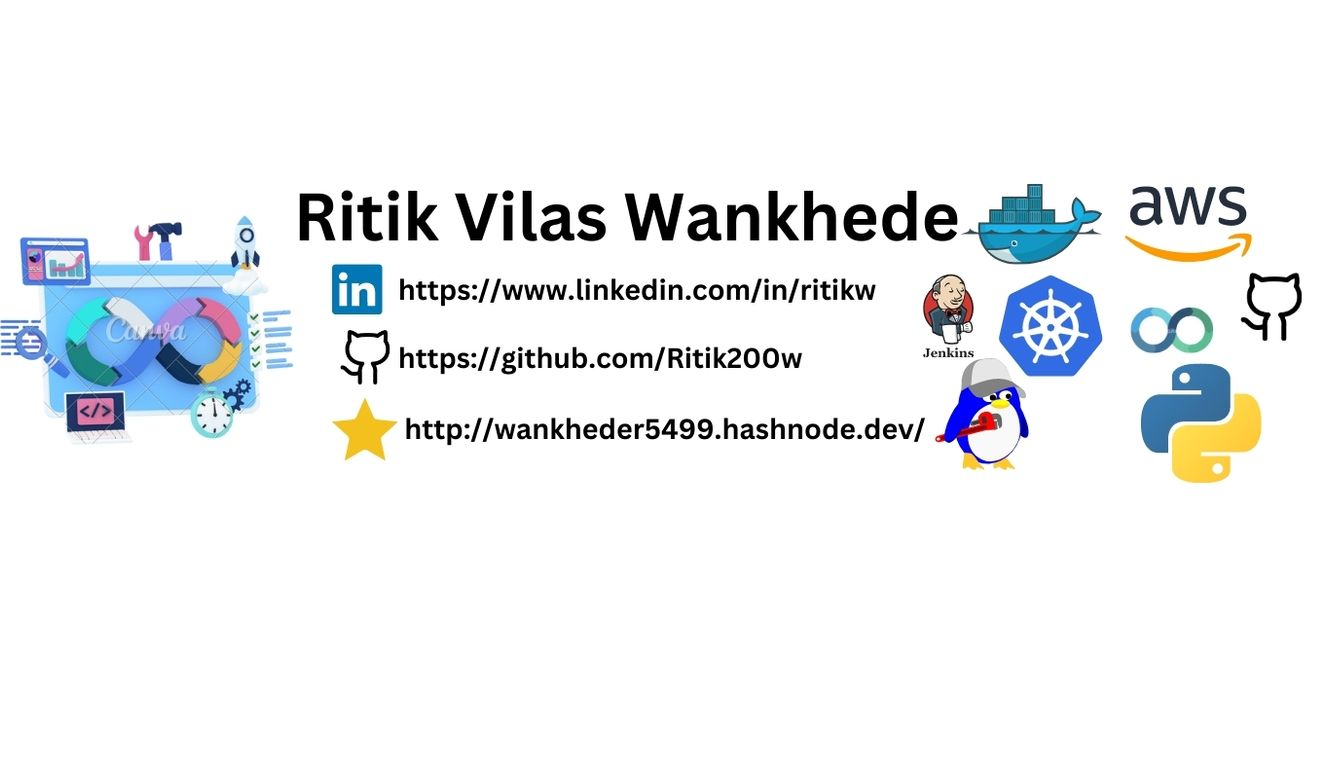AWS CodeBuild
 Ritik Wankhede
Ritik WankhedeHello everyone, embark on a transformative journey with AWS, where innovation converges with infrastructure. Discover the power of limitless possibilities, catalyzed by services like AWS CodeBuild In AWS, reshaping how businesses dream, develop, and deploy in the digital age. Some basics security point that I can covered in That blog.
Lists of contents:
What is AWS CodeBuild, and how does it fit into the AWS ecosystem?
What are the key features and benefits of using AWS CodeBuild for software development projects?
How does AWS CodeBuild streamline the build process compared to traditional methods?
What programming languages and frameworks are supported by AWS CodeBuild?
Can AWS CodeBuild integrate with other AWS services, and if so, how?
LET'S START WITH SOME INTERESTING INFORMATION:
- What is AWS CodeBuild, and how does it fit into the AWS ecosystem?
AWS CodeBuild is a fully managed continuous integration service provided by Amazon Web Services (AWS). It automates code building, testing and packaging in various programming languages and frameworks. CodeBuild removes the need for developers to configure and maintain their own build servers, allowing them to focus more on writing code and less on managing infrastructure.
Within the AWS ecosystem, CodeBuild fits into the bigger picture, enabling advanced software development development streams. . It integrates seamlessly with other AWS services such as CodeCommit, CodePipeline and CodeDeploy to form a complete CI/CD (Continuous Integration/Continuous Deployment) pipeline.
How AWS CodeBuild fits into the AWS ecosystem:
Integration with CodeCommit : CodeCommit is an AWS version control service that enables teams to host secure and scalable Git repositories. CodeBuild can pull source code directly from CodeCommit repositories to build, test, and deploy applications.
Integration with CodePipeline: CodePipeline is a continuous integration and delivery service that automates the build, test, and deployment steps of software changes. CodeBuild can be used as a build for CodePipeline, allowing developers to build advanced CI/CD pipelines.
Integration with CodeDeploy: CodeDeploy automates the deployment of code to instances or servers running on AWS infrastructure. CodeBuild can produce artifacts compatible with CodeDeploy, enabling seamless deployment of applications to EC2 instances, Lambda functions, or ECS containers.
Scalability and flexibility: As part of the AWS cloud ecosystem, CodeBuild benefits from application scalability and flexibility . AWS. It can automatically scale computing resources based on build size and demand, ensuring fast and reliable build times.
Security and Compatibility: CodeBuild inherits security features from AWS, including IAM (Identity and Access Management). granular access control, encryption at rest and in transit, and integration with AWS Key Management Service (KMS) to manage encryption keys. This ensures that code and build artifacts are securely handled according to industry standards.
- What are the key features and benefits of using AWS CodeBuild for software development projects?
AWS CodeBuild offers several key features and benefits for software development projects:
Fully Managed Service: AWS CodeBuild is a fully managed service, meaning AWS handles infrastructure management, scaling, and maintenance. Developers can focus on writing code instead of managing build servers.
Support for multiple programming languages and frameworks: CodeBuild supports multiple programming languages and frameworks, including but not limited to Java, Python, Node. js, Ruby, Mene and Docker. This flexibility allows teams to use the languages and tools as they wish.
Scalability: CodeBuild can automatically scale computing resources based on build size and demand. This ensures that builds are completed quickly even as projects grow in complexity or scope.
Integration with AWS services: CodeBuild integrates seamlessly with other AWS services such as CodeCommit, CodePipeline, CodeDeploy and Amazon S3. This integration allows developers to create end-to-end CI/CD pipelines to automate build, test and deployment processes.
Customization and extensibility: CodeBuild provides the flexibility to customize build environments and settings. Developers can set up custom build environments using Docker images or use AWS pre-built environments.
Paid pricing: AWS CodeBuild offers tiered pricing where users pay only to account for the resources consumed during the build process. This cost-effective pricing model eliminates the need for upfront infrastructure investment and enables cost optimization based on actual usage.
Highly secure: CodeBuild ensures the security of source code and build artifacts by integrating AWS Identity and Access Management (IAM), encryption at rest and in transit, and integration with AWS with Key Management Service (KMS) to manage encryption keys. This helps meet security and compliance requirements.
Fast build times: With scalable infrastructure and parallel performance, CodeBuild can significantly reduce build time for large projects, speeding up the feedback cycle and speeding up time to market.
Build. . metrics and monitoring: CodeBuild provides detailed build metrics and logs that allow developers to track build progress, identify issues, and optimize build performance over time.
Cross-ship compatibility: CodeBuild can build apps for a variety of deployments, including Amazon. . EC2, AWS Lambda, Amazon ECS and on-premises servers. This cross-platform compatibility makes it suitable for many use cases and environments.
- How does AWS CodeBuild streamline the build process compared to traditional methods?
AWS CodeBuild streamlines the build process compared to traditional methods in several ways:
Fully Managed Service: Unlike traditional build servers that require manual setup, maintenance, and monitoring, AWS CodeBuild is a fully managed service. AWS handles infrastructure provisioning, scaling, and maintenance, eliminating the need for developers to manage build servers themselves.
Automatic Scaling: CodeBuild automatically scales compute resources based on the size and demand of the build job. Traditional build servers often require manual provisioning of hardware or virtual machines, which can lead to underutilization or resource constraints during peak demand.
Parallel Execution: CodeBuild allows for parallel execution of build tasks, enabling faster build times for large projects. Traditional build servers may not support parallelization or require complex configuration to achieve similar performance gains.
Integration with AWS Services: CodeBuild seamlessly integrates with other AWS services such as CodeCommit, CodePipeline, CodeDeploy, and Amazon S3. This integration enables developers to create end-to-end CI/CD pipelines for automating the build, test, and deployment processes, reducing manual intervention and potential errors.
Pay-as-You-Go Pricing: AWS CodeBuild offers pay-as-you-go pricing, where users pay only for the compute resources consumed during the build process. Traditional build servers often require upfront investment in hardware or licenses, leading to higher costs and less flexibility.
Customization and Extensibility: CodeBuild provides flexibility for customizing build environments and configurations. Developers can define custom build environments using Docker images or use pre-configured environments provided by AWS. This customization allows for greater control over the build process compared to traditional build servers with fixed configurations.
Security and Compliance: CodeBuild ensures the security of source code and build artifacts through integration with AWS Identity and Access Management (IAM), encryption at rest and in transit, and integration with AWS Key Management Service (KMS) for managing encryption keys. Traditional build servers may lack built-in security features or require additional configuration to achieve similar levels of security and compliance.
Fast Feedback Loops: With its scalable infrastructure and parallel execution capabilities, CodeBuild can significantly reduce build times for large projects. Faster build times lead to quicker feedback loops, allowing developers to identify and fix issues early in the development process.
- What programming languages and frameworks are supported by AWS CodeBuild?
AWS CodeBuild supports a wide range of programming languages, frameworks, and build tools. Some of the supported languages and frameworks include:
Java: CodeBuild supports building Java applications using tools like Maven, Gradle, and Ant.
Python: Python projects can be built using standard tools like pip and setup.py.
Node.js: CodeBuild supports building Node.js applications using npm or yarn.
Ruby: Ruby projects can be built using tools like Bundler.
Go: Go projects can be built using the Go toolchain.
PHP: PHP projects can be built using Composer.
.NET: CodeBuild supports building .NET applications using MSBuild or .NET CLI.
Android: Android projects can be built using Gradle.
iOS: iOS projects can be built using Xcodebuild.
Docker: CodeBuild supports building Docker images directly, allowing for containerized application builds.
- Can AWS CodeBuild integrate with other AWS services, and if so, how?
AWS CodeBuild can be integrated with several other AWS services to create an end-to-end CI/CD pipeline. CodeBuild integrates with other AWS services as follows.
CodeCommit: AWS CodeCommit is a fully managed source control service that hosts secure Git repositories. CodeBuild can pull source code directly from CodeCommit repositories to start builds. This integration allows developers to automatically trigger builds when changes are pushed to the repository.
CodePipeline: AWS CodePipeline is a continuous integration and continuous delivery service that manages the build, test, and deployment phases of releasing software changes. CodeBuild can be used as a build for CodePipeline. Developers can define a pipeline in CodePipeline where CodeBuild is defined as one of the execution steps of the build process. This integration enables automated and advanced CI/CD workflows.
CodeDeploy: AWS CodeDeploy automates code deployment to EC2 instances, Lambda functions, or ECS containers. CodeBuild can create deployment artifacts compatible with CodeDeploy. After a successful build, developers can use CodeDeploy to deploy artifacts to multiple deployment targets, ensuring consistent and reliable deployment.
Amazon S3: AWS CodeBuild can upload build artifacts, such as build binaries or Docker images, to Amazon S3. bucket This integration enables secure storage of build artifacts and enables further processing or distribution if needed.
AWS Lambda: AWS Lambda is a serverless computing service that executes code in response to events. CodeBuild can call AWS Lambda functions after successful builds. This integration allows you to perform custom post-build actions or perform additional automation tasks with Lambda functions.
AWS Systems Manager parameter store: CodeBuild can safely retrieve build parameters or secrets from the AWS Systems Manager parameter store during the build process. This integration allows sensitive configuration data to be centrally and securely stored without being coded as build scripts or environment variables.
AWS Secrets Manager: AWS Secrets Manager is a service that helps protect the use of applications, services, and IT resources. CodeBuild can safely retrieve secrets from the AWS Secrets Manager at build time. This integration enables secure access to sensitive data such as API keys or database credentials at build time without exposing them in plain text.
THANK YOU FOR WATCHING THIS BLOG AND THE NEXT BLOG COMING SOON.

Subscribe to my newsletter
Read articles from Ritik Wankhede directly inside your inbox. Subscribe to the newsletter, and don't miss out.
Written by

Ritik Wankhede
Ritik Wankhede
SUCCESS ISN'T OVERNIGHT. IT'S WHEN EVERY DAY YOU GET A LITTLE BETTER THAN THE DAY BEFORE. ITS ALL ADDS UP.